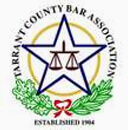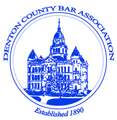In general, courts assume it is in every child’s best interests to have a consistent and continuing relationship with their parents, especially after their parents split up. However, when the past actions of a parent indicate they may cause physical, emotional, or moral harm to their child in the future, the court may place restrictions on whatever visitation rights it grants to that parent.
Supervised visitation in The Colony is not uncommon. An experienced visitation attorney could explain exactly how this type of visitation works, what rights and expectations both parents will have, and what steps you need to take to carry out visitation under this type of possession order.
Every decision the court makes regarding child custody and visitation prioritizes the best interests of the child. Accordingly, a judge in The Colony will only order supervised visitation if they feel—based on clear and convincing evidence—that unsupervised visitation would be detrimental to the child’s physical safety or psychological well-being.
The most common grounds that prompt the court to order supervised visitation are a history of physical, verbal, or emotional abuse of either the child or another family member. Parents with personal histories of child neglect or substance abuse may also be subject to supervised visitation requirements. The court may also use this type of visitation for parents dealing with serious mental health problems, parents who are incarcerated following a criminal conviction, and parents who may attempt to abduct their child.
Depending on the circumstances, the court can order supervised visitation at its own discretion, or the custodial parent can request it when they believe the other parent may be at risk of harming the child. When the child is old enough, the court can factor their preferences into the visitation decision.
Typically, The Colony supervised visitation happens on a schedule set by the court, under the direct supervision of a neutral third party assigned by the court or—less commonly—a family member of the child. While supervised visits are often held at the court, they can alternatively occur in other public places such as a mall or even at the primary parent’s home.
When a court-assigned worker supervises the visitation, they compile a report about what happens during the visit, which they later submit to the court for review. The court could reference the report for modifying an existing possession order later. While the court can and sometimes does rescind supervised visitation requirements, non-custodial parents must meet stringent criteria set by the court first—for example, completing a substance abuse rehabilitation program and staying sober for several months afterward.
Supervised visitation can be a difficult topic to bring up, but it can also be crucial to protecting a child’s best interests without denying visitation rights altogether to a non-custodial parent. Whether you are seeking this type of possession order or trying to contest one, you need help from seasoned legal counsel if you want to achieve your preferred case result.
Cases involving supervised visitation in The Colony could be much easier to handle with a lawyer on your side. Call today for a consultation.
Our Law Firm’s approach to your case is based on individual circumstances. Whether it is a simple negotiated settlement, or it requires an aggressive approach, we will protect and defend your best interests.


